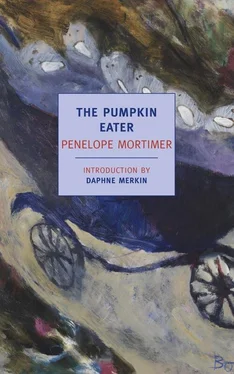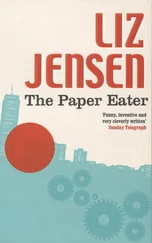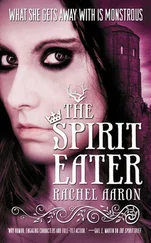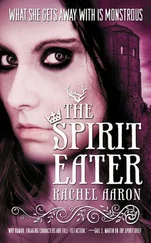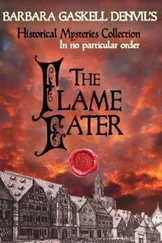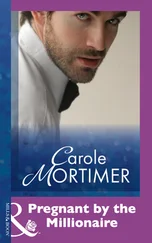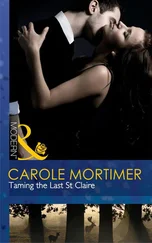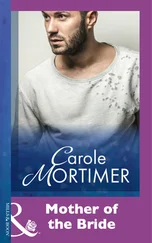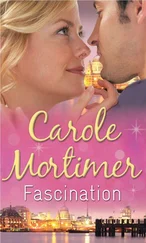The tower was finished. When we went there it looked bleak and foolish, like a monument to a disgraced hero, a folly built for some cancelled celebration. However, we dutifully filled it with furniture, with kittens that the children had found in a hedge. We made it work, because we had money. At home, in the shabby, dying house that my father had set us up in, the past was never entirely forgotten. In the tower there was only the future. We abandoned it, saying we would return in the summer. In the meantime we employed women to keep it clean, as one might employ cleaners for a sepulchre in which one hopes to rest, at some distant date, in peace.
21
“We thought it would be rather fun,” the young man said, “if you told us what you think about the Bomb. I mean, you do have all these children, don’t you?”
“Yes,” I said.
“That’s splendid.” He settled himself a little more easily into the sofa. I felt that he had not been absolutely certain that this was the right house. “I was so sorry to hear you’d not been well.”
I lifted a cigarette out of the box on the desk, read the brand name printed round the top — Jake now smoked Gauloise — and shut the lid of the box carefully.
“How did you hear that?”
“Your husband’s secretary told me. On the telephone.”
“You telephoned?”
“To make an appointment. The secretary said — ”
“That I was always in in the afternoons?”
“Yes. That’s right. She said you were always here in the afternoons.”
“You told her … what you wanted?”
“But naturally.”
I lit the cigarette and looked out of the window. In the next garden but one, a woman was hanging washing on the line; dust from the partially demolished house on her other side would blow on to her washing. Twelve years ago, you know, there were many ruins round here, willow herb grew in the remains of dining rooms. Then the houses were rebuilt, their scars were patched, skirtings, spandrils, treads and risers washed, prepared and painted, sashes and beading renewed, soffits, reveals and sills replastered, slates and flashing replaced and repaired. All the garden walls were built again for neighbours to lean against and children to run on over the new ramblers and virginia creeper. Only last year I could look out of the window and see nothing but gardens, Pakistanis drip-drying their shirts, children swinging, typists lying in the sun. Now, as I looked, an entire wall tottered and fell. The woman at the clothes line hesitated for a moment before reaching for another clothes peg from her apron pocket.
I wondered whether it was worth telling the young man that where those straight houses had stood, holding families and ’cellists and old, exhausted Jews on every floor, they were now building cottages for company directors, with glazed front doors and wrought-iron shoe-scrapers. Would he think it was fun? I looked at him and he said, “Anyway, I hope you feel better now.”
“Thank you. Yes.”
“How long have you been out of hospital?”
“About six weeks. But it was a nursing home.”
“It sounds much comfier.” He smiled hopefully over the back of the sofa, screwing himself round, since I was standing behind him.
“I’m sorry,” I said. “I didn’t ask you if you smoke…”
“No. No, I don’t, thank you.”
I walked over to the fireplace, so that he could straighten himself out. He was very young indeed: probably about the same age as my eldest child. He stroked his small camera tenderly for a moment, then said, “Of course my own view is that it does us a lot of good to live in a state of insecurity. I’m all for it.” He waited, it seemed to me eagerly, but I didn’t answer. His face clouded like a boy whose firework has failed to go off. “Doesn’t that make you angry?”
“If I were fifteen years younger, or you were fifteen years older, it would make me angry. As it is …” I tried to smile, but he was bitterly offended and bridled, girlish. Oh well, he was longing to say, if that’s what you think! I was sorry to have hurt him; he, after all, had done me no harm. I sat down, scraping at a bit of plasticine embedded in the chair with my thumbnail.
“I’m very frightened,” I said. “Not for myself. I don’t mind for myself.”
“For your children.”
“Of course.”
“Why?”
“Why?” I asked. But he looked back at me with perfect calm, unsmiling, his hands hanging between his narrow thighs, his toes pointed outwards, the upper part of his body concave, relaxed as a tramp on a park bench. “Well…” I said. “For them it will be … For them … If they survive…”
“You mean Strontium 90,” he said, “and all that jazz.”
“Yes.”
“But you know that’s all wildly exaggerated. Remember that scare last year? I mean you’re not worrying about the milk or anything, are you?”
I nodded. I was worrying about the milk, about my children falling in love, about the creatures who crawled through the dark towards us, their ancestors, their loving assassins, breathing “Why?” like a cold wind. “Yes,” I said. “I worry a bit about the milk.”
“And what do you do about it?”
“Nothing,” I said.
His expression was pleased. I stopped looking at him and said, working at the plasticine, “It’s like everything, isn’t it? … If you’re a Christian you can … put your affairs in order. I suppose you can be kinder to everyone. Be loving. Try to make your soul perfect. Try to make everyone happier.” I glanced up at him, keeping my head down. His face was stony. “But if you’re not, then you can either eat and drink and be merry or just … go on living with it. But you have to change.”
“Do you?”
“Of course. It’s a different … climate. You have to change.”
He disliked me now. “And how have you — changed?”
I threw a grain of plasticine into the empty grate behind the electric fire. “You should talk to Dinah,” I said. “She paints Ban the Bomb on everything.”
“Dinah?”
“My — one of my daughters.”
“How old is she?”
“Seventeen.”
“Oh, well,” he said, “at that age…” He was about twenty-three. “I suppose she sits down all over the place?”
“No. She just paints Ban the Bomb. And wears a badge of course. She was a Deist, but there’s no badge for that. It makes a difference.”
“You ought to approve of her, feeling as you do.”
“I do approve of her. If they had badges for being against … capital punishment or the colour bar, or badges for protesting about there being no houses for people to live in — ”
“She’d wear the lot, I suppose.”
“Certainly.” I was tired of his unshakeable middle age. “She also belongs to a number of fan clubs.”
“Does she, indeed?”
He lifted his camera, aimed and shot. I heard Josephine, the new nurse, coming down the stairs. She tapped on the door and only after I had called “Come in” was my youngest child, my last child, allowed to enter. She walked two feet, the extent of her leather reins, and the nurse said, “Say goodbye Mummy,” from outside the door. This nurse would not come into what she called the drawing room except by request. The little girl looked at the young man and her harness tinkled like Christmas. He swivelled round and shot her over the back of the sofa. She blinked and looked for the nurse, who tugged her gently backwards.
“And how old is this one?” the young man asked.
“Four.”
“We’re just four,” the nurse sang, invisible. “Just four, aren’t we?”
The child swayed about on the end of her tether and scratched her angora bonnet with a mittened fist. Whatever she wanted to do, walk or scratch or keep quiet or pee at irregular hours, she was prevented. My mother thought her a dull child. There was nothing wrong with her except her upbringing and the fact that she believed me to be always ill.
Читать дальше
